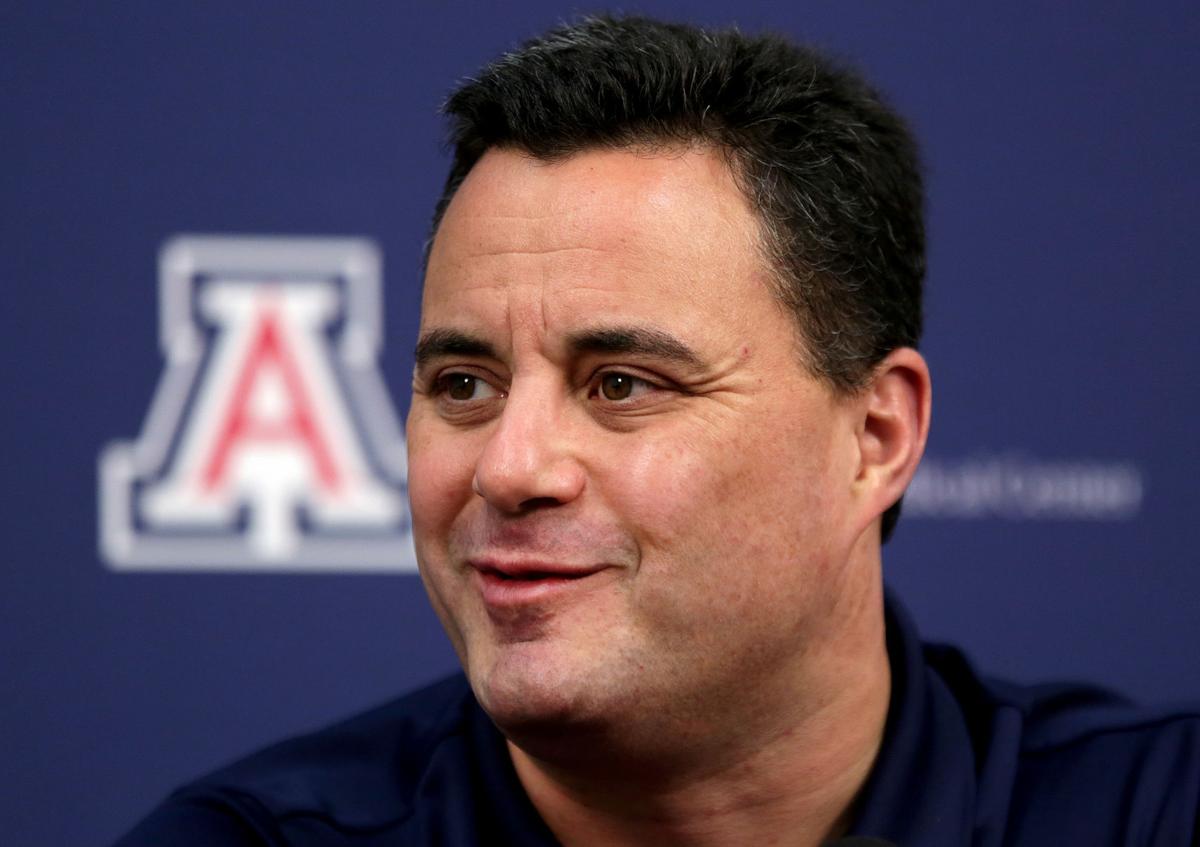We’ve been living in a sweet delusion.
If Tucsonans agree on anything, it is our ardor for the University of Arizona men’s basketball team. The love of the team crosses social divides and, especially come March, unites the community in cheering the team toward the Final Four.
The feeling is precious — really. It’s a persistent, passionate love. No wonder we are unwilling to take a hard, realistic look at this team we’ve fallen for so desperately.
Now it’s time.
The scandal that came with the arrest of assistant coach Emanuel “Book” Richardson Tuesday should wake Tucson up from our decades of denial. Elite college sports are a crooked, corrupt business. That doesn’t mean the people involved are bad, just that we cannot expect them to both compete for a title and stay clean.
That’s as true in Tucson as it is in Louisville or Los Angeles.
You know who made that point really well last week? One of the UA’s most famous and beloved basketball alumni: Steve Kerr.
Kerr led the first Lute Olson team to make it to a Final Four, in 1988, so he helped spark the love affair between Tucson and its team. Now the wildly successful coach of the NBA’s Golden State Warriors, Kerr was asked Wednesday about this new college basketball scandal. He answered this way:
“There’s a reason I coach in the NBA. I never wanted to be a college coach. I don’t immerse myself in that stuff. The NBA is very pure. We don’t want to make apologies or concessions about what we’re doing. We’re just playing basketball. It’s a business. And the NCAA obviously has lots of things to figure out on many levels, who they are and what they’re doing.”
The key word in that comment, of course, is “pure,” which sounds counter-intuitive when applied to pro sports. Here’s what I think he meant: The NBA is a business that doesn’t pretend it’s about anything but money and basketball. In that sense, it is pure — an unhindered athletic and financial pursuit.
The NCAA, of course, does have pretensions that it is about something more — at minimum, about education for the “student-athletes.” On this, I’ll interpret Kerr a little further: He seemed to also be tweaking the NCAA’s self-image as “pure” because it is nominally amateur. This is a holdover concept that should have withered decades back, but we have continued to treasure it in Tucson up to today.
You hear it in the protestations that our beloved coach, Sean Miller, seems like a great person who would never knowingly allow his players to be paid for coming to the UA, or for their playing services.
I heard a version of this from Ted Schmidt, a well-known local lawyer who I called Friday because I know he’s a UA alum and a big Wildcat fan with season tickets at McKale Center. He was eager to defend Miller.
“Sean Miller has earned respect and the right to the benefit of the doubt,” Schmidt said. “Everything I’ve known and seen about him leads me to the conclusion that I trust he is not implicated in this. Until proven otherwise, that’s the way I feel.”
Then I spelled out to Schmidt my general sense that the money-making college sports are inherently corrupt because of the distortion caused by the fact that players cannot be paid for the massive value they create and the incentives for outside interests to win the players’ services.
Schmidt pointed out the sleaziness of the AAU summer basketball programs that college coaches use to evaluate players. He’s right — they are sleazy, as illustrated by the 2015 documentary “At All Costs.” It features UA player Parker Jackson-Cartwright as an extremely impressive high school student caught up in an overhyped basketball-recruitment machine.
“That underlying structure is inherently a very bad thing,” Schmidt said. “It’s not surprising at all that this sort of thing happens. It’s surprising that it happens at the University of Arizona.”
Please, Tucsonans: Do not be surprised anymore.
Perhaps head coaches don’t have direct knowledge of what it sometimes takes to land elite players. But that’s mainly because they have delegated that responsibility to assistants who do the dirty work of recruiting and insulate the head coaches from guilty knowledge.
Adidas and Nike have money to splash around, the TV networks do, the agents, the AAU teams, the boosters. But the young players and their families are prohibited by archaic NCAA rules from demanding their fair share of the spoils. That’s just wrong.
It would be useful if we grappled with this reality now, while we have the chance, and turned our attention to how to fix it instead of worrying about whether our No. 1-ranked team will lose a season that had such glorious potential.
Be aware, though. The usual pattern is that a scandal breaks, the coaches are cleared out, reforms are implemented, new staff is brought in, and eventually corruption or scandal creeps back.
The system needs an overhaul now. Perhaps college football and basketball teams could be spun off by the universities as affiliated businesses without major academic requirements. Maybe players could be offered scholarships redeemable whenever they are ready to study.
Most importantly, players must be allowed some way to demand and receive a fair share of the value they’re creating without it being a violation that tarnishes the player, the coach and the university. Then Tucsonans can gather again and cheer without delusion.





